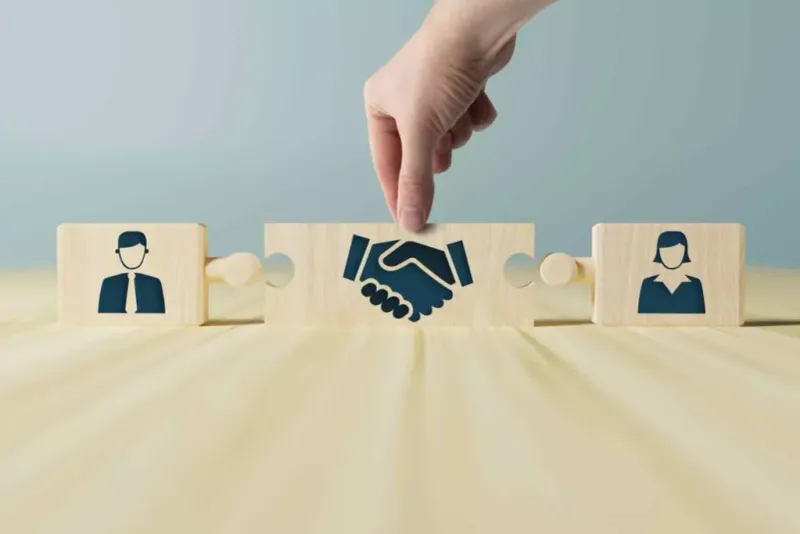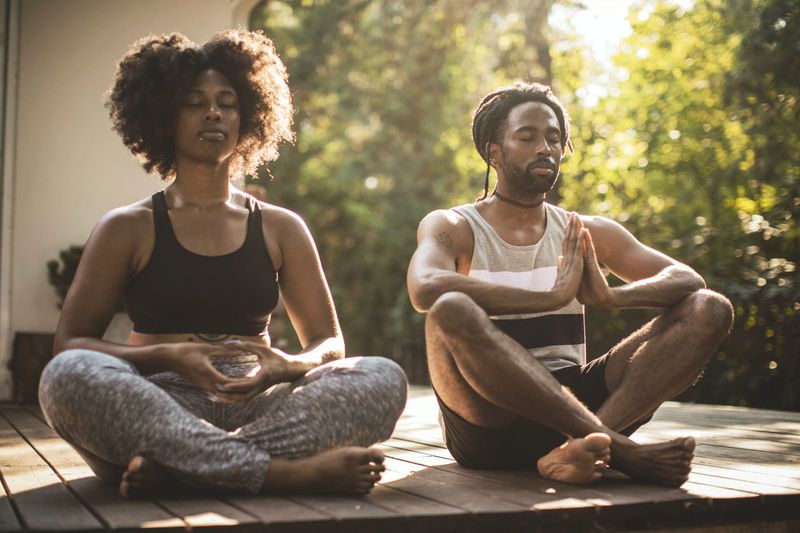Married, with a mortgage, and still flinch at the sound of raised voices? Yeah, I know the feeling. That old knot in your stomach? Childhood wounds don’t stay in the past just because we wear rings.
If you’ve ever wondered why you freeze, snap, or crumble during what should’ve been a minor disagreement with your partner, you’re not alone—and you’re not broken.
There’s nothing shameful about carrying emotional scars into marriage. What matters is what you do with them now. Healing isn’t about erasing the past. It’s about facing those hidden bruises with open eyes, even when it means admitting you’re still hurting.
The good news: You can work on those aches and start showing up—fully and honestly—for yourself and the person you chose. The following 15 strategies aren’t magic, but they’re real tools psychologists recommend for people who are ready to do the hard, beautiful work of healing while married.
1. Practice Self-Compassion
Ever notice how you talk to yourself after a mistake? If it’s harsher than you’d ever say to someone else, you’re not alone. Self-compassion is about cutting yourself some slack, especially when old wounds get triggered.
I used to think I needed to be tough on myself so I’d finally get it right. But all that did was make every setback feel like proof I was still broken. Psychologists say treating yourself with the same care you’d offer a friend isn’t self-indulgent—it’s essential.
Start with something small: when that familiar shame floods your chest, pause and say, “Hey, this hurts, but I’m here for me.” Over time, this practice softens those jagged edges inside, making it easier to heal and connect with your partner.
2. Develop Healthy Boundaries
Boundaries aren’t walls—they’re front doors. You decide what comes in and what stays out. Growing up without healthy boundaries can make it tough to say no, especially to people you love.
I remember feeling guilty every time I asked for space in my own marriage. Turns out, boundaries don’t mean shutting people out; they mean protecting what’s tender and real. Setting them might feel awkward at first, but it gets easier.
Think of it as teaching others how to treat you. Psychologists insist boundaries are the scaffolding for real intimacy, not its enemy. Your needs matter. Defining them is an act of courage, not selfishness.
3. Cercare un aiuto professionale
Some wounds go deeper than you can handle alone—and that’s nothing to be ashamed of. Do you wish you had a guide for all the confusing feelings marriage brings up? Therapy is the next best thing. My therapist helped me connect the dots between my childhood pain and my adult reactions.
You don’t have to relive every detail to benefit. Sometimes, just saying something out loud is enough to loosen the grip of old stories. Reaching out is a sign you’re taking yourself, and your marriage, seriously.
A therapist’s job isn’t to fix you—it’s to help you see your patterns clearly and choose what to keep. At times you need a wise outsider to remind you you’re not beyond repair.
4. Reflect on Past Trauma
In certain moments, the past feels like a movie you can’t stop replaying. Reflecting on trauma isn’t about wallowing—it’s about understanding why certain moments still sting.
When I started journaling about my childhood, things I’d buried for years resurfaced. It was raw, sometimes messy, but honest. Psychologists say putting words to your pain robs it of some power.
Reflection doesn’t mean living in the past. It means giving yourself a chance to see old stories with adult eyes. That’s how you stop letting them run the show in your marriage.
5. Cultivate Supportive Relationships
The right people can make you feel less like damaged goods. I spent years hiding my struggles because I assumed everyone else had it together. Turns out, support isn’t about pity; it’s about being seen.
Surround yourself with those who listen without judgment. A friend who texts after a rough therapy session or a sibling who lets you be messy—that’s gold. Psychologists say support networks are like emotional lifeboats.
Don’t believe the myth that love means going it alone. Leaning on others doesn’t make you weak; it means you’re brave enough to trust again, even when it feels risky.
6. Build Emotional Resilience
Resilience isn’t about never breaking down. It’s about learning how to get back up, even with scars. I used to think I’d finally be strong once nothing hurt me anymore. But resilience looks more like laughing through tears than never crying at all.
Psychologists say resilience is something you build, not something you’re born with. You can practice it: exercise, small acts of self-care, saying yes to help.
Every time you face a tough emotion and keep going, you’re stretching your emotional muscles. In marriage, this means not letting old pain call the shots every time things get hard.
7. Practice Mindfulness Techniques
Some days I couldn’t tell if I was angry, sad, or just tired. Mindfulness gives you space to notice what’s happening inside without trying to fix it right away.
Yoga, meditation, or even just breathing for a minute—it all counts. This isn’t about emptying your mind; it’s about making room for your feelings, even the ugly ones.
Tiny pauses can interrupt old knee-jerk reactions in marriage. Instead of snapping or shutting down, you give yourself a moment to choose what’s next. Occasionally, that’s all the difference.
8. Embrace Vulnerability
Growing up, I learned to hide my feelings behind jokes or silence. Vulnerability felt like showing up to a knife fight in a tank top. But real connection in marriage only happens when you risk being seen.
This is the birthplace of trust, according to psychologists. It’s not about sharing every secret, just about letting your guard down long enough for someone else to step closer.
When you admit you’re scared or sad, you give your partner permission to do the same. From time to time, the bravest thing is saying, “I don’t know how to fix this, but I want to try.”
9. Seek Support from Your Partner
Not every spouse knows how to help, but most want to. Early in my marriage, I kept my pain quiet out of shame. When I finally started talking about it, I was surprised by how much lighter I felt.
Psychology remind us: marriage isn’t about being rescued, but about having a teammate. Let your partner know what support actually looks like—sometimes it’s listening, sometimes it’s a hug.
You don’t have to have it all figured out before you let someone in. Saying “I’m struggling, but I want you with me” is an invitation, not a burden.
10. Listen to Your Inner Child
Ever see an adult meltdown and think, that’s not about the dishes? Your inner child is that part of you holding onto old hurts. Therapists say listening to her isn’t weird—it’s honest. And, as a tangible way to comfort the hurt inside you, write a letter to that inner child.
You don’t have to be poetic. Just honest. What did you wish someone had said when you felt alone or scared? I realized how often those feelings ran the show. Instead of shaming that younger part, I began to ask her what she needed.
It can feel strange at first, but honoring your inner child’s voice helps you respond instead of react in marriage. On occasion, she just wants to know she matters.
11. Engage in Creative Expression
My pain used to sit heavy in my chest until I started painting again. Creative expression isn’t about making something beautiful—it’s about letting your inside world have a voice. Creativity can unlock feelings words can’t reach.
Whether it’s music, painting, or doodling in the margins, the act of creating is healing. It gives you permission to be messy, bold, or even silly.
Art doesn’t ask for explanations. At times, the relief is in the process, not the result. In marriage, finding ways to express yourself can open new doors between you and your partner.
12. Educate Yourself About Emotional Wounds
You’re not dramatic. Turns out, there’s a real science behind why old hurts stick around. Therapists say understanding your wounds gives you a map for healing them.
Read, listen to podcasts, or follow therapists online. Knowledge won’t fix everything, but it can make you feel less alone in your struggles.
The more you know, the less you blame yourself. Learning the language for your pain is the first step to asking for what you need—in marriage and beyond.
13. Set Realistic Expectations
Healing isn’t linear, and it’s definitely not quick. I once thought a couple months of therapy would make everything better. Instead, progress looked like tiny, uneven steps.
The advice is setting goals that are gentle and real. Some days will feel like breakthroughs; others, you might just get through.
Give yourself permission to move slowly. In marriage, expecting instant change just leads to disappointment. Being realistic lets you notice the small wins that actually matter.
14. Engage in Acts of Kindness
When I felt empty, giving something small to someone else made a surprising difference. Acts of kindness aren’t about erasing your pain—they give you a sense of purpose outside your wounds.
Helping others activates parts of the brain linked to happiness. Whether you volunteer, donate, or just offer a listening ear, you remind yourself you have something valuable to give.
In marriage, kindness can break up old resentment. Occasionally, showing up for someone else is what helps you see yourself in a new light.
15. Develop Healthy Coping Strategies
Old wounds have a way of hijacking your reactions. For years, I’d go numb or lash out when I felt overwhelmed. Psychologists recommend filling your toolbox with healthy coping skills—deep breaths, journaling, taking a walk.
You can’t change your triggers overnight, but you can change how you respond. The more you practice, the more automatic these habits become.
Coping well doesn’t mean ignoring your pain. It means finding ways to move through it without losing yourself—or your marriage—in the process.
















